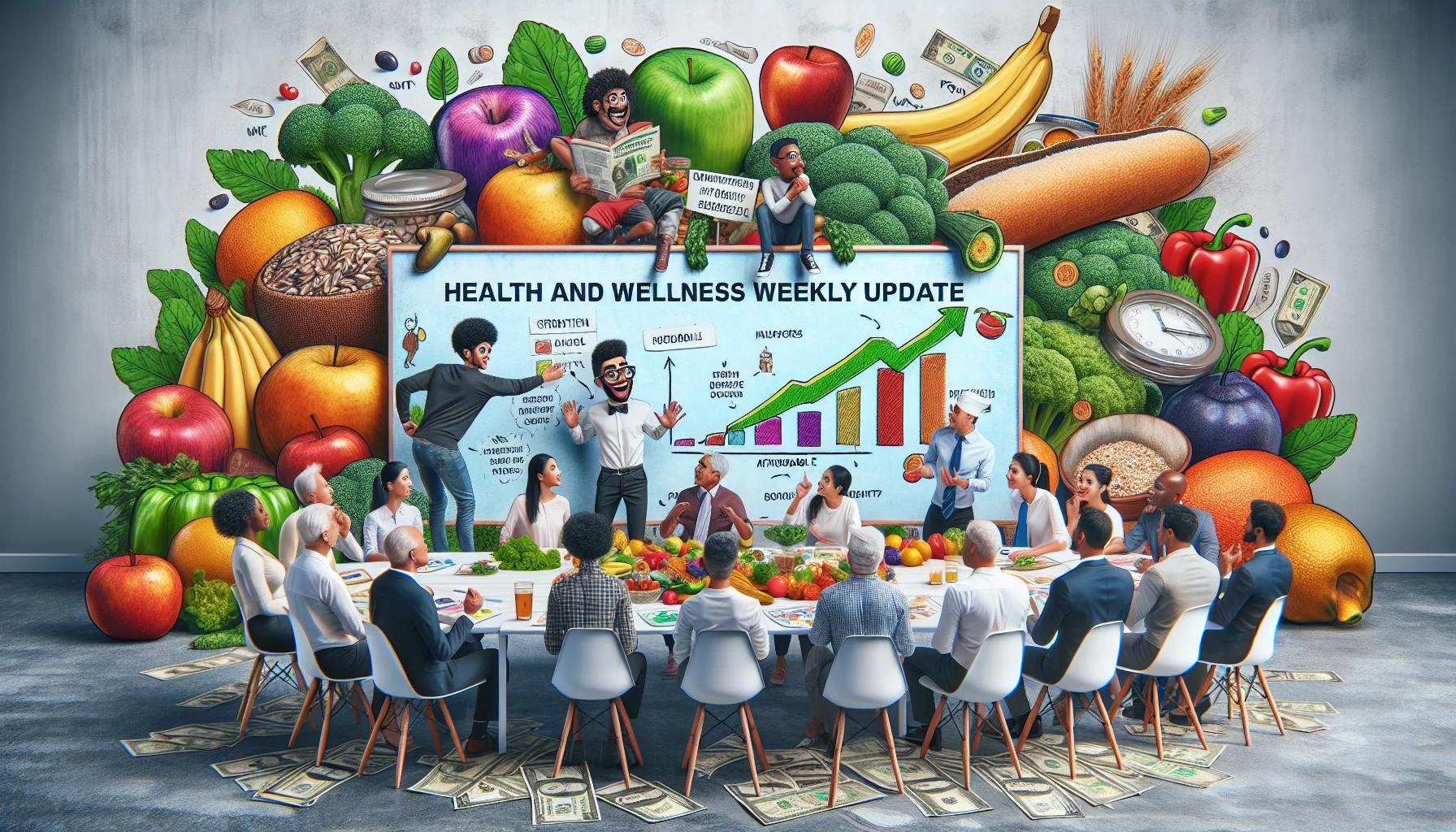Health and Wellness Weekly Update Quiz
Test Your Knowledge
Question of
Health and Wellness Weekly Update: Embracing Healthy Eating
Healthy eating is a cornerstone of maintaining overall health and wellness. It's about making choices that nourish your body, provide essential nutrients, and support your well-being. Embracing a healthy diet can help prevent chronic diseases, improve mental health, and boost energy levels. This week, we dive into the importance of integrating nutritious foods into your daily routine and how it can significantly impact your life for the better.
The Benefits of Incorporating Whole Foods into Your Diet
Whole foods, such as fruits, vegetables, grains, nuts, and seeds, are packed with essential nutrients that are often lost in the process of making processed foods. Unlike their processed counterparts, whole foods are free from added sugars, preservatives, and artificial ingredients, which can have detrimental effects on health. Incorporating whole foods into your diet can lead to improved digestion, better weight management, and a reduced risk of chronic diseases such as heart disease, diabetes, and cancer. Additionally, whole foods provide high levels of antioxidants and fiber, which are crucial for detoxifying the body and maintaining a healthy gut. By choosing whole foods over processed foods, individuals can enjoy a variety of flavors and textures, making meals more enjoyable and nutritionally balanced.
5 Simple Healthy Eating Tips for Busy Individuals
- Prepare your meals in advance to save time and ensure you have healthy options readily available.
- Keep healthy snacks like fruits, nuts, and yogurt on hand to avoid reaching for unhealthy options when you're in a hurry.
- Choose whole foods over processed options whenever possible for more nutritious meals.
- Stay hydrated by carrying a water bottle with you, which can also help curb hunger and prevent overeating.
- Make smart choices when eating out by opting for grilled over fried foods and salads with dressing on the side.
Understanding the Impact of Sugar on Your Health
Excessive sugar intake is a major health concern that can lead to a range of negative health outcomes, including weight gain, increased risk of heart disease, and diabetes. Consuming high amounts of sugar can also lead to tooth decay and has been linked to higher levels of anxiety and depression. To mitigate these risks, it's advisable to reduce the consumption of sugary foods and beverages. Opting for healthier alternatives such as fruits, which contain natural sugars, along with a high fiber content, can satisfy sweet cravings while providing nutritional benefits. Additionally, considering natural sweeteners like stevia or honey in moderation can also be a healthier choice. Making small, consistent changes to reduce sugar intake can have a significant positive impact on your overall health.
The Role of Hydration in Healthy Eating
Staying hydrated is a fundamental aspect of maintaining a healthy lifestyle that complements a nutritious eating plan. Water is essential for virtually every function within the body, from facilitating digestion to ensuring the efficient transport of nutrients to cells. Adequate hydration supports the body's natural detoxification processes, aids in metabolism, and can even help in weight management by promoting a feeling of fullness and reducing the likelihood of mistaking thirst for hunger. Moreover, consuming sufficient amounts of water can improve skin health, enhance cognitive function, and boost energy levels, making it an indispensable component of a holistic approach to healthy eating and overall wellness.
How to Plan Your Meals for a Healthier Week
- Start with assessing your week - Consider your schedule to determine how many meals you need to prepare.
- Choose your recipes - Pick recipes that are healthy, balanced, and you are excited to eat. Make sure to include a variety of fruits, vegetables, proteins, and whole grains.
- Make a grocery list - Write down all the ingredients you need for your recipes to avoid impulse buys at the store.
- Prep your ingredients in advance - Wash and chop your vegetables, marinate proteins, or even cook some components of your meals ahead of time.
- Store your meals properly - Use airtight containers to keep your prepped meals fresh and avoid spoilage.
- Be flexible - Life happens, and sometimes you might need to swap meals around or eat out. The important thing is to make the best choice available.
- Reflect and adjust for next week - Take note of what worked and what didn’t to continuously improve your meal planning process.
Healthy Eating: A Gateway to a Healthier Life
In conclusion, embracing healthy eating habits stands as a fundamental pillar in the quest for a healthier life. It's not merely about dietary restrictions or aiming for a slender figure, but about nourishing your body, enhancing your well-being, and setting the stage for a vibrant, disease-free life. By choosing whole foods over processed options, incorporating a variety of nutrients, and listening to our bodies, we unlock the door to optimal health. Let us remember, the journey to wellness begins with what we put on our plates. Hence, making mindful, nutritious choices is a powerful step toward achieving and maintaining overall health and wellness.












